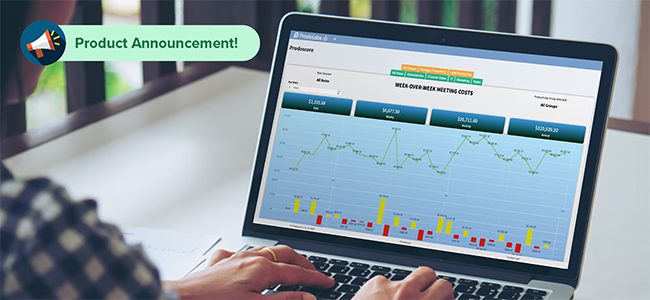Does Working Long Hours Increase Sales Performance?
Those of us that have been in the workforce for a while can likely recall a boss that measured productivity purely by how much time was spent in the office. It was clear what was required to get a promotion – long nights, early mornings and weekends. Was there any truth to this philosophy? Did this activity increase output, so warrant recognition and advancement? What happens to productivity as work shifts extend? How can we use this information to increase sales performance?
To tackle these questions, I thought it might first be helpful to understand how some of these organizational behaviors came into being. Then, we might better understand their rationale. As part of this review, I’ll take a closer look at what factors are most closely aligned to increase sales performance.
Origins of the Long Work Week
If you began your career as an accountant in the latter part of the 20th century and your desire was to become a Certified Public Accountant (CPA), then it was a given you had to get your audit work done at one of the “Big 8” accounting firms. Anything less would never get you into the bigger, more desirable firms, or set you on a path to become a CFO for any decent sized organization (source).
Today, the list has shrunk down to just four firms, through scandal and industry consolidation, and now includes: KPMG, E&Y, PwC and Deloitte Touche Tohmatsu. What has resulted is a consolidation of power and influence on both the industry and hiring practices. These firms can be as demanding as they see fit, to “weed out” those associates not willing to work hard to gain their two years of audit work.
Consequently, new recruits are in for long work hours. During the busy tax preparation season, these auditors can work as much as 15 hours a day Monday through Thursday, then 8-9 hours Fridays and Saturdays and 6-8 hours on Sundays (source). This work schedule goes on in January and February, with a slightly reduced level of activity for the rest of the year.
Why do employees put up with this work? To get their audit hours requirement to then become a CPA and work their way into senior management.
Another industry that has a history of long working hours is Investment Banking. For decades there was an unwritten rule that in exchange for reasonably high-paying jobs and a shot at incredible wealth, young analysts agreed to work the same 15 hours a day and would do so for several years to have a chance of making it to partner.
It makes sense then that this practice spread to other industries, aspiring to be as coveted as the Big 4 accounting firms, or I-banks on Wall Street. Note the driving force here was not likely increasing productivity, but rather, increase overall billable hours and revenues, provided a sufficient review process was in place to ensure mistakes were not made.
A New Dawn
Interestingly, this practice might now be coming to an end.
At the end of 2014, Goldman Sachs told its junior investment-banking analysts not to work on Saturdays, and it has said that all analysts, on average, should be working no more than seventy to seventy-five hours a week (shocking announcement when it came)! Then, Bank of America Merrill Lynch followed suit, saying that their analysts are expected to have four weekend days off a month. In an act of unity, Credit Suisse then told its analysts that they should not be in the office on Saturdays (source).
What is going on? Did the investment banking community get a new heart, like the Tin Man in the Wizard of Oz? Not likely. What they likely came to appreciate is that while hours were up, productivity was down. It turns out people don’t always make the best workers after a 15-hour shift. Certainly, another factor was how to effectively attract new millennials into their workforce, given this demographic’s different perspective on work and rewards.
Read this article for further perspective on this topic: “Establish a Flexible Work Schedule to Address Millennial Needs.”

The Right State of Mind for Productive Work
As human beings, our overall capacity for productivity can be attributed to several factors. These can be summarized as our current state of mind or our mental capacity, as well as our physical demeanor – are we tired, run down or incapable of paying attention or performing physical tasks associated with our work. To that end, we need sufficient sleep on a regular basis.
Mental factors, however, might have the greatest impact. A boost in productivity can come from a positive experience, such as a desire to complete a task or objective, impress a boss or co-worker, etc. Working in a chosen field, wanting to help others in need or working with a great team are other examples that can significantly amplify productivity, leading to an increase in sales performance.
Alternatively, the opposite is also true. Those feeling mentally depleted or exhausted to a point of where it impacts overall mental well-being can bring output to a grinding halt.
Here is where the number of hours worked can be a misleading indicator of who is working with the greatest productivity. Sure, the number of hours worked is an easy metric to track and compare performance. But, its accuracy in relation to optimizing performance might not be very good. To start, there is a “Law” that can distort the results of purely measuring effort based on hours worked.
Parkinson’s Law
In 1955, the Economist published an article based on a report commissioned by the Royal Commission on the Civil Service. This report noted an interesting, yet commonplace observation that the time spent working will expand to fill the time available for its completion (source). The article gave a great example (at least one relevant to the 1950’s when it was published) of how an elderly “lady of leisure” could spend literally an entire day writing and mailing a postcard. Yet, the total effort to complete the same task might only take three minutes for a busy, working professional.
I find this Law quite interesting, and one that is true from what I have observed in my life. Some people manage to be highly productive, yet others struggle just to do the minimum actions necessary– even when these people don’t even work a full-time job! Herein lies a challenge to measuring productivity by simply counting hours.
If you are at work, in a position where you have a limited amount of time before you can attend to a personal commitment, then you will find a way to get the work done in the fastest way possible, with the greatest productivity.
A Better Approach to Measure and Increase Sales Performance
What should now be obvious is that a better metric is needed to capture the profile of a high performing sales professional – and then reward accordingly to promote the continuance of these actions. This metric might include multiple factors, which when combined, provide a clear picture of who has been more effective with managing their time.
Prodoscore has identified a unique approach to effectively capture a wide variety of activity metrics which – when taken together – produce a performance or Productivity Score™ that can be used to effectively measure sales performance. This approach yields accurate results that can then be acted upon for future performance improvement. Over time, this strategy can then increase an overall sales team’s performance.
Read more here: “How Team Coaching Can be a Great Strategy to Reduce Sales Turnover.”
I think most people would agree that the right approach is to strive for balance. This means spending enough time to be productive and getting your work done, while at the same time not working too long to avoid burnout, mistakes or poor decisions. Achieving this balance requires both workers and management to understand how to strike this balance, with the tools to manage the process to optimize output and results.
By having more time to spend doing activities outside of work that you enjoy, your quality of life improves and you’re more excited to do well at work because you’re happier and well rested. And so the cycle continues. A study out of the University of Warwick (source) confirms that “happiness led to a 12% spike in productivity, while unhappy workers were 10% less productive.”
In conclusion, it appears that working fewer hours really does lead to more productivity! That seems like a win-win for everyone.

